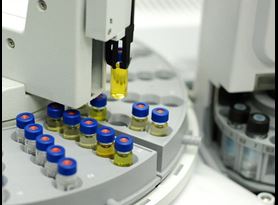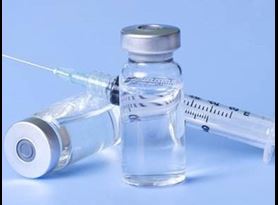Our comprehensive, customized polymer and plastic testing services are tailored to meet your needs. We'll help you understand polymers and their characterization - our analytical scientists have decades of experience analyzing polymer materials for a wide range of applications. We can help meet all of your polymer materials testing and characterization needs with state-of-the-art polymer, composite, and blend characterization techniques, wide range of equipment, and team of world-class analytical scientists.
Polymer characterization and testing laboratory
Element's plastic testing labs use a wide range of techniques to identify the components of a material, including polymer resins, inorganic fillers, stabilizers, colorants, additives, impact modifiers, and more. Your specific testing needs will be met with tailored processes. Our analysis methods and techniques include:
- FTIR Spectroscopy
- Gas Chromatography Mass Spectrometry (GC-MS)
- Liquid Chromatography Mass Spectrometry (LC-MS)
- Gel Permeation Chromatography (GPC)
- Differential Scanning Calorimetry (DSC)
- FID/TCD/ECD
- Mass Spectrometry (including Pyrolysis)
- Optical microscopy
- Optical testing - color, haze, and gloss
- Thermogravimetric analysis (TGA)
- High-performance liquid chromatography (HPLC)
- Scanning Electron Microscopy (SEM) and Energy Dispersive X-ray Spectroscopy (EDS)
- Pyrolysis (MSD)
- Nuclear Magnetic Resonance (NMR) spectroscopy (1H, 13C, 19F, 29Si)
- Ultraviolet-visible (UV-Vis) spectroscopy
- ICP-MS and ICP-OES/AES elemental and trace metal analysis
- Rheological testing (viscoelastic properties, stress relaxation, melt viscosity, melt flow rate)
- Physical testing - density and hardness
- Gas separation and liquid separation techniques for extractables and leachables
- Microscopy (optical microscopy, stereo microscopy, scanning electron microscopy, energy dispersive X-ray microscopy, transmission electron microscopy)
- Ion chromatography (IC)
- Wet chemistry, such as Karl Fischer titration
- Tensile testing (yield, ultimate strength, ultimate elongation, toughness, fracture)
- Thermal properties testing (glass transition temperature, melting temperature, softening temperature, specific heat, degradation temperature, degradation rate, weight loss, thermal expansion coefficient, crystallinity, crystallization, phase transitions)
- Mechanical properties testing (yield, ultimate strength, ultimate deformation, toughness, fracture)
-
Flash point measurement
-
Aerosol flammability testing (US, Canadian, EU, and GHS Standards)
The Element advantage
Learn more

Troubleshooting and Updating Analytical Methods
Element provides troubleshooting and updating analytical methods services to help you achieve more consistent product quality, more efficient manufacturing, reduce cost and save money.

Extractables and Leachables Studies
Element's extractables and leachables studies offer tailored solutions that ensure patient safety and compliance with industry standards.

NMR Spectroscopy
NMR spectroscopy in pharmaceutical analysis enables identification of substances and impurities, verification of chemical synthesis and compound characterization, supporting critical stages of pharmaceutical development.

Polymeric Failure Analysis
Failure analysis of polymer-based medical devices is critical to guarantee that process or material improvements can be made to prevent repeated failures.

